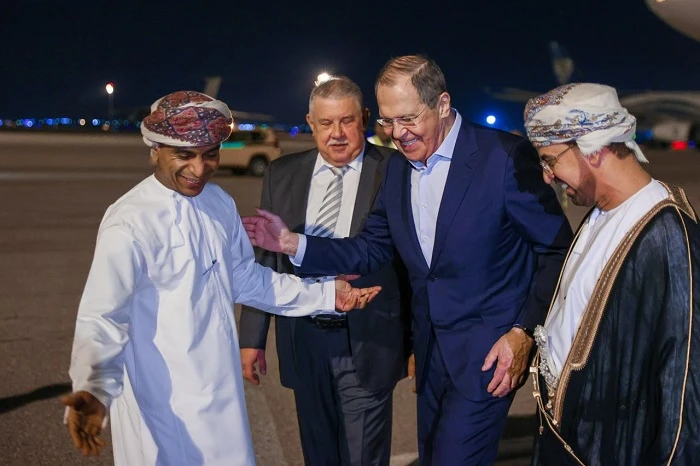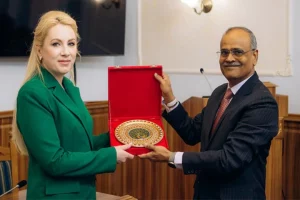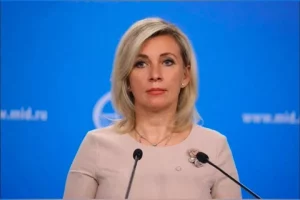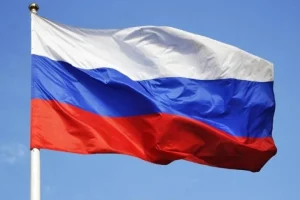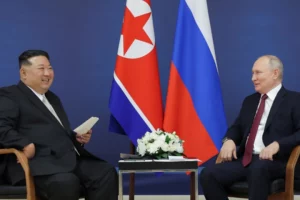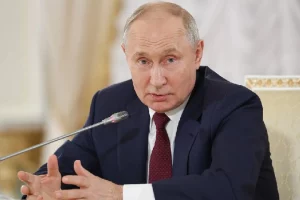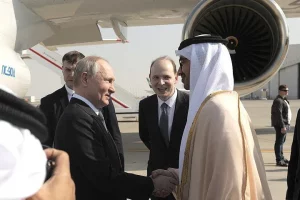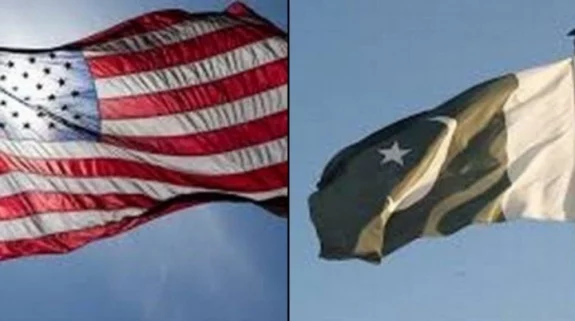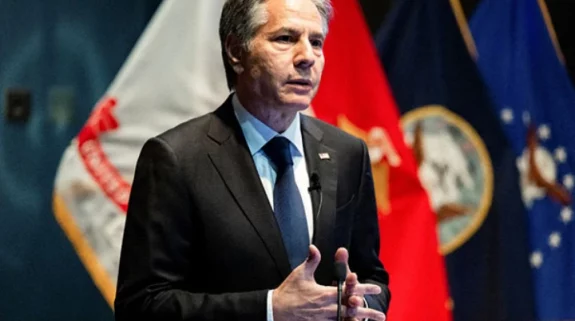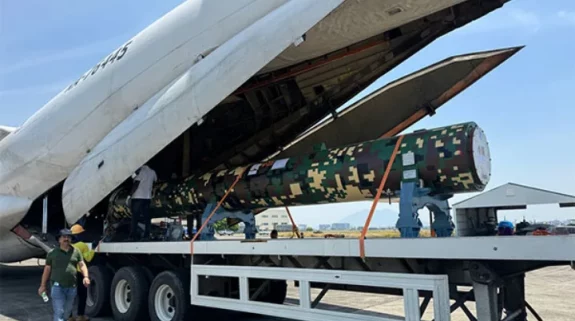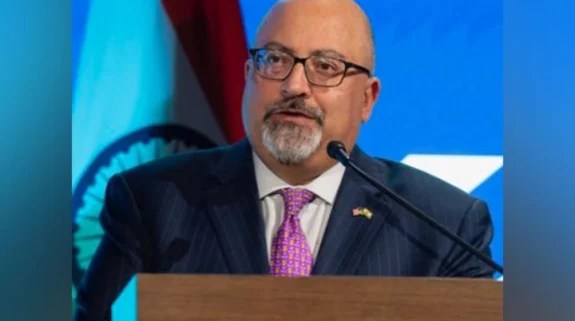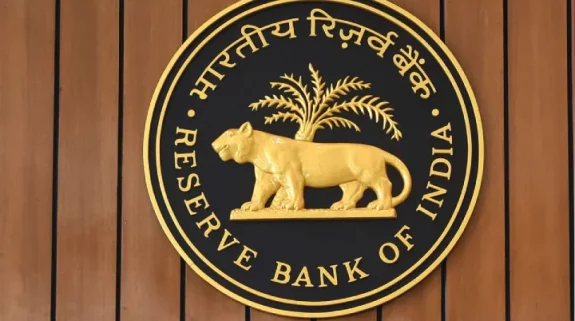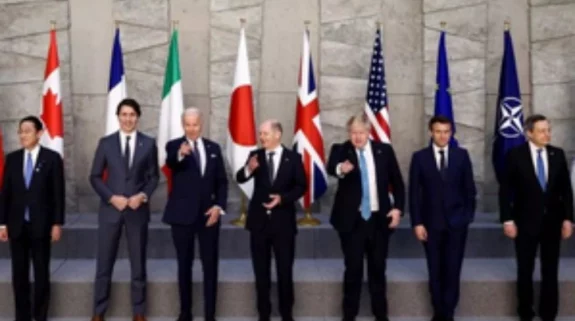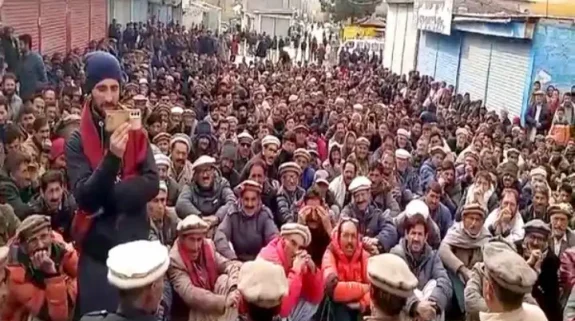Russian Foreign Minister Sergei Lavrov's visit to Algeria and Oman comes at a time when Europe is looking at North Africa to break free from its dependence on Russian gas and the Arab world at the same time displaying willingness to mediate between Moscow and Kyiv to end the ongoing conflict.
Lavrov landed in Algiers on Tuesday – a visit which was labelled as "unannounced" by many – to share with the Algerian leadership the Russian assessments and considerations in connection with the development of the situation in Ukraine.
As he forwarded to Algerian President Abdelmadjid Tebboune an invitation from his Russian counterpart Vladimir Putin to pay a visit to Moscow to mark the 60th anniversary of diplomatic ties between the two nations, Lavrov appreciated the "balanced and objective" position taken by Algeria on the Ukrainian issue.
"Algeria is a member of the Contact Group of the League of Arab States (LAS), which recently visited the Russian Federation and then met with the Minister of Foreign Affairs of Ukraine. Our Arab friends were guided by the decisions taken within the Arab League at the ministerial level, which we consider objective and useful," said the Russian Foreign Minister.
A regional power in North Africa, Algeria is also expected to play a major role after the European Commission proposed an outline of a plan to make Europe independent from Russian fossil fuels well before 2030, starting with gas, in light of the ongoing Russia-Ukraine conflict.

Algeria's Minister of Foreign Affairs and the National Community Abroad, Ramtane Lamamra, with his Russian counterpart, Sergei Lavrov in Algiers on Tuesday (Image courtesy: Twitter/@Algeria_MFA)
Covering an area of around 2,382 square kilometres, Algeria is territorially the Organization of the Petroleum Exporting Countries or the OPEC's largest member country and the largest country in Africa. OPEC lists the oil and gas sector as the backbone of the Algerian economy, accounting for about 20 per cent of the gross domestic product, and 85 per cent of total exports.
With the European Union needing energy that is imported from third countries, over three quarters of its imports of natural gas comes from Russia (43%), Norway (21%) and Algeria (8%).
Looking for alternative gas solutions after Russia began its 'special military operation' in Ukraine on February 24 this year, many European nations, including Greece, Spain and Italy, have already struck new deals with Algeria recently.
When asked about how Russia assesses the position of Algeria regarding gas supplies, Lavrov cited observance of the fundamental norms that have been followed in the past.
"On gas supplies to the world market. We and Algeria, other participants of the Forum of Gas Exporting Countries adhere to the agreements reached. I am sure it will continue to be so," he said.
Russia also remains the biggest supplier of arms to Algeria, one of the largest arms importers in the region.
"We talked about the further development of military-technical cooperation, which has strong roots and good prospects. The Russian Federation appreciates the confidence placed in us by our Algerian friends in strengthening the defence capability of Algeria," said Lavrov.
He added that the new strategic document will "reflect the new quality of bilateral partnership" between the two countries.
Travelling to Muscat on Wednesday, Lavrov "synchronized watches" on topical international issues with his Omani counterpart Badr bin Hamad Al Busaidi and Deputy Prime Minister for the Council of Ministers of Oman Fahd bin Mahmoud Al Said.
The Russian foreign ministry said that considerable attention was paid to the situation in Ukraine and around it with Lavrov informing the leadership of Oman in detail about the goals and objectives of the 'special military operation' undertaken by Russia in Ukraine as well as about the Russian-Ukrainian negotiations.
The Russian Foreign Minister stated that, when considering the current situation in the Middle East region, the fundamental approaches of Moscow and Muscat coincide in favour of resolving the crisis that persists in the strategically important region by political and diplomatic means.
"As for Oman's position on the Ukrainian crisis, we consider it balanced and based on the rational interests of its people. This is precisely the approach shared by all other countries in the region and which has been enshrined in the decisions taken within the framework of the Cooperation Council for the Arab States of the Gulf and within the framework of the League of Arab States," said Lavrov.
Also Read: In for a long haul in Ukraine, Russia builds support for a united front against US and its allies






